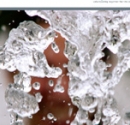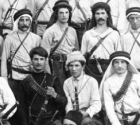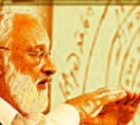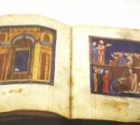
In memory of the late Yaakov Yehudah Frimer
This issue of the ESRA magazine comes out right in between the holidays of Chanukah and Purim. Interestingly, there are many similarities between these two joyous days in the Jewish calendar:
(1) Both are Rabbinic holidays in which work is permissible.
(2) Both commemorate a battle of the Jews against their enemies: Chanukah marks the battle of the Maccabees against the Seleucid Empire; while Purim celebrates the deliverance of the Jewish people of the ancient Persian Empire from Haman's plot to annihilate them.
(3) Both have special acts of commemoration: reading the book of Esther on Purim; lighting candles on Chanukah.
(4) Prior to performing these commemorative acts on these holidays, there is the recitation of a special benediction “…sheAsa nissim l’avoteinu ba-yamim ha-hem ba-zeman ha-zeh …Who has performed miracles to our forebears in those days at this season.”
(5) On both holidays the special prayer “Al ha-nissim ve-al ha-purkan” – “For the miracles and the salvation…” is added to the Amida and Birkat haMazon (grace after meals).
In the “Al ha-nissim” recited on Chanukah, we say: ve-Ata be-rahamekha ha-rabim amadeta la-hem be-eit tsaratam: ravta et rivam, danta et dinam, nakamta et nikmatam…Lord, You mercifully stood by them in their time of travail. You fought their battles, punished their enemies and took their revenge for them…
Note that the language is in the third person plural, and is in the past tense.
On Purim, after reading the Megilla, we make a concluding benediction which has a very similar content and nearly identical text – but it is in first person plural. What’s more, the benediction is formulated in the present tense: Barukh ata HaShem…haRav et riveinu, ve-ha-dan et dineinu, ve-ha-nokem et nikmateinu…Blessed art Thou, Lord our G-d… Who fights our battles, Who punishes our enemies and Who takes our revenge for us…
My revered mentor, the late Rav Yehudah Gershuni (1908-2000) suggested that on Purim Haman attempted to destroy us physically: He couldn’t care less whether the Jews were observant or not. This was simple racist anti-Semitism of the type we experienced with the Nazis. Hence, by saving our forbears on Purim, G-d saved us as well. That is why we can state: “Who fights our battles, Who punishes our enemies and Who takes our revenge for us…” The battles of Mordechai and Esther have relevance down to our very day.
On Chanukah, however, the Hellenists wanted to destroy our forebears spiritually, and we commemorate their redemption. Yet, spiritual redemption in one generation only guarantees that the message of Torah and tradition will be transmitted to the next generation – it does not guarantee that the next generation will be willing to receive it or pass it on. Each generation has to fight its own battles. Hence, by Chanukah we can only say in the past tense: “You fought their battles, punished their enemies and took their revenge for them…”
In each of these two Rabbinic holidays, the rejoicing fits the crisis. On Purim, in place of the physical destruction planned by Haman, we have physical rejoicing with a Seudat Purim (Purim meal), Mishloah manot (sending of food gifts) and Matanot la-evyonim (charity to the poor). On Chanukah, we celebrate our salvation from our spiritual destruction by spiritual rejoicing with Hallel (psalms of praise) and Al haNissim. Indeed, this is explicitly stated in the text of the Al haNissim we recite on Chanukah:
Ve-Kavu shemonat yemei Hanukah eilu lehodot u-le-hallel le-shimkha ha-gadol – And they established these eight days of Chanukah to give thanks and praise to thy glorious name.
Nevertheless the noted 14th century Tur Codex (by R. Jacob ben Asher: 1270-1340) records that it was a widespread custom to have some partying and feasting during Chanukah. He argues that while such meals are not obligatory, such festivities are proper if they incorporate the giving of thanks and praise to the Almighty through songs, prayers and words of Torah. In the modern period, Chanukah has been a major catalyst in strengthening the Jewish identity of those who might otherwise be assimilated or alienated from their Jewish roots. This alone is justification enough for the importance of proudly celebrating one’s Jewishness through Chanukah festivities.
Byline on Frimer….
 DEAR EDITOR 153
DEAR EDITOR 153 REVISITING THE PAST BETH HASHOMER
REVISITING THE PAST BETH HASHOMER BIBLICAL ZOOS & ANIMAL RESERVES IN ISRAEL
BIBLICAL ZOOS & ANIMAL RESERVES IN ISRAEL Kabbalah For All
Kabbalah For All Haggadot
Haggadot Passover 5767 ...The Holiday of Freedom
Passover 5767 ...The Holiday of Freedom Aryeh A. Frimer
Aryeh A. Frimer